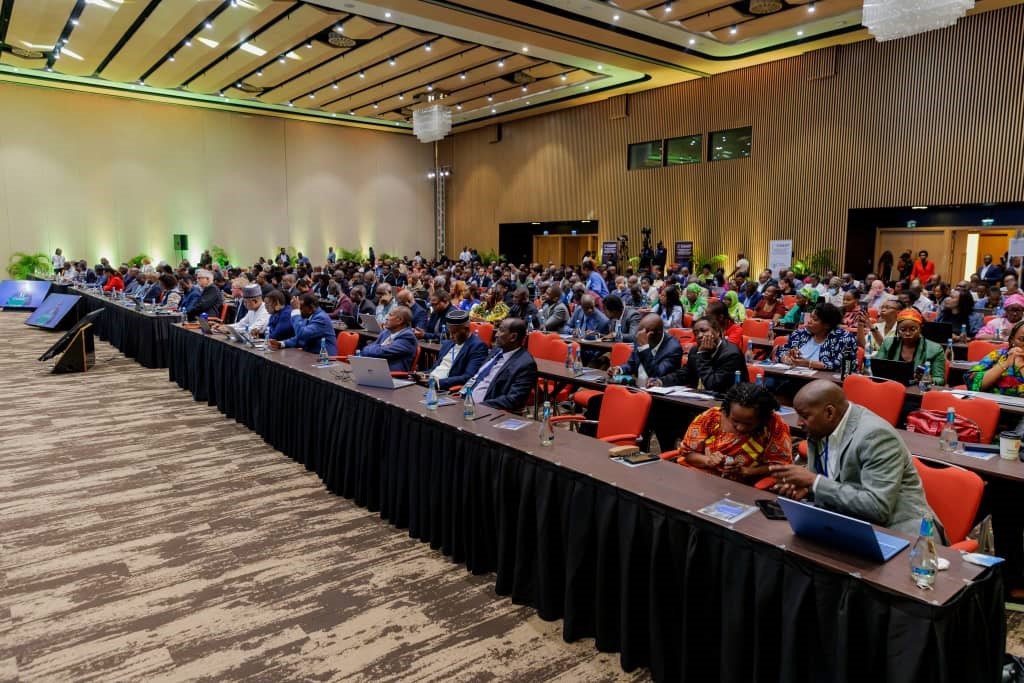The 21st CAADP Partnership Platform and the 16th Africa Day for Food and Nutrition Security officially kicked off today at the Kigali Convention Centre, bringing together African leaders, policymakers, and development partners under the theme: “From Malabo to Kampala: Accelerating Just, Resilient Agrifood Systems Transformation for Nutrition and Sustainable Growth.”
Speaking during the high-level opening session, Rwanda’s Minister of State in the Ministry of Agriculture and Animal Resources, Dr. Théogène Ndabamenye, stressed that Africa’s future prosperity depends on transforming political commitments into tangible action across the continent.
“Africa’s progress will be defined by how effectively we implement our pledges. We must sustain the Malabo momentum through the CAADP Kampala Strategy to build resilient and nutrition-secure agrifood systems,” he said.
The event builds on previous engagements, including the Extraordinary Summit in Kampala in January 2025 and preparatory meetings in Kigali later that year, which shaped the post-Malabo agenda. These discussions culminated in the Kampala Declaration, a continental commitment to accelerate agricultural transformation over the next decade.
The new strategy shifts focus from traditional farming to a broader agrifood systems approach. It highlights stronger agro-industrialization, increased investment in value chains, and the empowerment of women and youth as key drivers of growth.
As Africa marks the 16th Africa Day for Food and Nutrition Security, Dr. Ndabamenye emphasized that the continent’s efforts must ensure equitable access to food.
“Food security is not only about producing more; it is about producing better, ensuring every African, especially children and vulnerable groups, has access to safe, nutritious, and affordable food,” he noted.
Throughout the week, discussions will center on turning the Kampala Declaration into measurable outcomes. Stakeholders are expected to agree on improved accountability mechanisms, resource mobilization strategies, and stronger partnerships between governments, private sector actors, farmers, and regional institutions.
With climate shocks, food price volatility, and persistent malnutrition still posing significant challenges, participants agree that the path forward demands urgency, innovation, and collective responsibility. The meetings in Kigali mark a crucial step in Africa’s mission to build a sustainable and hunger-free future — one rooted in agricultural strength and resilience.





